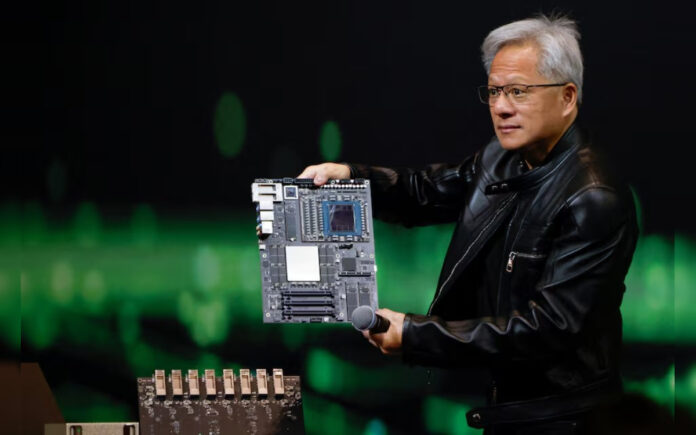Norrkoping: Nvidia CEO Jensen Huang praised U.S. President Donald Trump’s industrial and technology-focused policies during a visit to Sweden on Saturday, calling them “very visionary”. His remarks came as the chip giant announced a major collaboration with Swedish companies to build artificial intelligence (AI) infrastructure in the country.
Nvidia will supply its next-generation AI data center platform to a consortium of Swedish firms, including telecoms equipment maker Ericsson and pharmaceutical company AstraZeneca, in a move aimed at accelerating Sweden’s AI capabilities.
The partnership is part of a broader global expansion for Nvidia, which has recently forged similar deals in Saudi Arabia and the United Arab Emirates. These moves follow the Trump administration’s decision to revoke an export restriction on AI chips that had been imposed during former President Joe Biden’s tenure.
Huang, a vocal critic of export controls, previously described them as “a failure.” He emphasized that Trump’s policies are aimed at boosting the competitiveness of U.S. technology firms.
“American technology companies were very successful in China four years ago, we have lost about 50% of the market share and competitors have grown,” Huang said during a public appearance in Norrköping, where he was set to receive an honorary doctorate from Linköping University.
“The President would like American technology to win with Nvidia and American companies to sell chips all over the world and to generate revenues, tax revenues, invest and build in the United States,” he added.
Also Read | Cannes Power Outage During Film Festival Sparks Arson Investigation
The Trump administration has implemented broad tariff measures to bolster U.S. manufacturing, arguing that such policies will encourage growth, restore industrial jobs, and increase tax revenue.
However, critics—including some economists and business leaders—warn that tariffs could backfire by increasing production costs, destabilizing global supply chains, and dampening both consumer and investor confidence.
Still, Huang welcomed several aspects of the re-industrialisation effort, noting its potential to reshape global manufacturing dynamics.
“Manufacturing in the United States, securing our supply chain, having real resilience, redundancy and diversity in our manufacturing supply chain — all of that is excellent,” he said.



